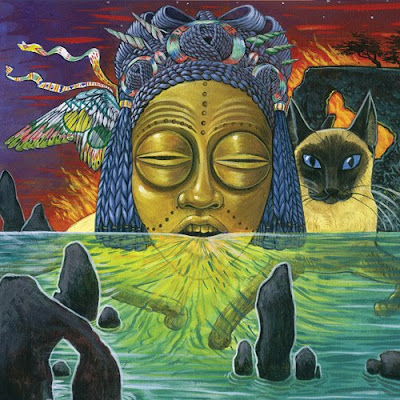Friday, September 18, 2009
Quit Wasting Time
Tuesday, June 9, 2009
An honest thought...
Somewhere we live inside
Somewhere we live inside...."
Monday, May 25, 2009
What?
Friday, May 22, 2009
A Mad man's love

Monday, April 27, 2009
ACID

The colours, red and yellow and green,
Wednesday, April 22, 2009
Dead Poets Society

[pause]
John Keating: Mr. Perry?
Neil: To communicate.
John Keating: No! To woo women! _
Dalton: I'll second that.
Neil: "To put to rout all that was not life; and not, when I had come to die, discover that I had not lived."
John Keating: "But only in their dreams can men be truly free. 'Twas always thus, and always thus will be."
Pitts: [reading the poem title] "To the Virgins To Make Much of Time"?
John Keating: Yes, that's the one. Somewhat appropriate, isn't it?
Friday, April 17, 2009
An Indian Wedding
Monday, April 13, 2009
"Knowing"
" We used to go up to the Catskill Mountains for vacations. In New York, you go the Catskill Mountains for vacations. The poor husbands had to go to work during the week, but they would come rushing out for weekends and stay with their families. On the weekends, my father would take me for walks in the woods. He often took me for walks, and we learned all about nature, and so on, in the process. But the other children, friends of mine also wanted to go, and tried to get my father to take them. He didn't want to, because he said I was more advanced.
So we went alone for our walk in the woods. But mothers were very powerful in those day's as they are now, and they convinced the other fathers that they had to take their own sons out for walks in the woods. So all fathers took all sons out for walks in the woods one Sunday afternoon. The next day, Monday, we were playing in the fields and this boy said to me, "See that bird standing on the stump there? What's the name of it?"
I said, "I haven't got the slightest idea."
He said, "It’s a brown-throated thrush. Your father doesn't teach you a thing!."
That evening I asked my father, why he never told me the name of the bird. He asked me, "What was the first thing you noticed about it?"
"Well, it flies ... , which is kind of strange.... " , I answered.
Father replied with a wry smile, "It's a brown-throated thrush, but in Germany it's called a halsenflugel, and in Chinese they call it a chung ling and even if you know all those names for it, you still know nothing about the bird--you only know something about people; what they call that bird. Now that thrush sings, and teaches its young to fly, and flies so many miles away during the summer across the country, and nobody knows how it finds its way."
There is a difference between the name of the thing and what goes on."
This an anecdote from Mr. Richard P. Feynman's life. He was a physicist. I am not preaching science. This is just for those people who don't know enough about a certain thing, but consider themselves right in forming illogical opinions about it, coating the partial knowledge they have with figments of their own imaginations. Fine, even if forming opinions about just another thing you know "the name of" satisfies your ego, go ahead smart-asses! But don't try to preach your incomplete knowledge as if you are the ultimate authority.You might be diluting the essence of things.
Tuesday, March 17, 2009
Friday, February 13, 2009
You
Thursday, January 1, 2009
STARS!

There I was, lying on the grass, hands behind my head, thoughtlessly gazing into infinity. The dewy layer on the grass did not shine enough that winter night – it was moonless. The only sight that caught my attention that night was that of small dots of light, piercing through the nothingness of the bluish-black sky. “They are called Stars” – I said to myself. They did not speak, nor did they react to what I just said. All they did is – twinkle. And that brought a smile to my face. It was that night when my amazing fascination for these cosmic beings came to existence. I was six then.
As I grew up, so did my interest in the world beyond ours. As I learned more about the Universe, the first thought that struck me was – How infinitely big it is. The fact that I was a part of this limitless cosmos gave me a great sense of enormity – a strange sense of pride. There was a sense of excitement, when I thought about the places far away (really far away), which are still untouched, unexplored, unknown. And the embodiments of this fascinating idea of distance and obscurity were the Stars. These distant, innocent looking points of white light are actually, huge, intensely hot masses of gas and radioactive elements – home to the most explosive nuclear phenomena in the Universe - Fusion. ‘Outward appearances are surely deceptive’. Stars are majestic. Our own Sun is a middle-aged star. Millions of kilometers away from the earth, the Sun is the source of all heat and light on earth and all of the Solar System. This might give you an idea, of the amount of energy a star produces.
Like all creations of nature, stars also emerge from dust – space dust. Randomly scattered planetary dust and gases, are attracted towards each other under the action of Gravity, and under specific conditions and temperature, they form what we call a ‘protostar’ – the infant in Mother Nature’s womb. Along the course of billions of years, stars pass through different phases in their stellar lives (yellow dwarfs, red dwarfs, red giants, white dwarfs, neutron stars!) and exist for different lifetimes, depending on how massive they are. Just like humans, some stars just fade away into darkness, while others have spectacular deaths. When a sufficiently massive star uses up all its fuel for nuclear fusion, its constituent particles, start collapsing into each other under the effect of its own Gravity, resulting in the Supernova explosion – a burst of radiation that can outshine a galaxy, and produce as much energy as the Sun would produce in a lifetime. The remnant of a supernova is a Black Hole – an infinitely dense dark void in the cosmic fabric which attracts everything into itself, even light. Ironically, the same universal force of attraction is responsible for both the birth and the death of a star – Gravity.
But stars are much more than mysterious objects of Astronomy. We all want to ‘reach the stars’ or ‘be a star, a superstar!’. Stars have always been associated with success and recognition. They are thought of as the ultimate sign of glory. That is why stars hold immense importance in every culture, and are the symbol of the triumphant spirit of man.
For me, stars have a very personal meaning. They are a representation of all virtues and ideals I stand for. They relate to what I am and what I would want to be like in the future. Being as glorious and mighty as they are, stars appear to us as humble luminous specks across the night sky. They are physical embodiments of life energy, which they radiate through the entire Universe. But the virtue I define stars by is unending resolve. The light from the stars flickers and shimmers. It seems as if it fights a relentless battle against the darkness, and finally manages to pierce through, overcoming all odds.
Whenever I feel low, I look deep into the night sky and see the stars twinkling away shedding their light upon me. I have them, when I have no one else. What I feel at that moment is beyond expression.
‘The Night Sky so infinite,
Where the beauty of contrast abounds,
Stars are points of shimmering light,
Which cosmic darkness calmly surrounds.’
The Curve of life

NOTE: I wrote this essay, as an answer to an essay question in a university application .....
